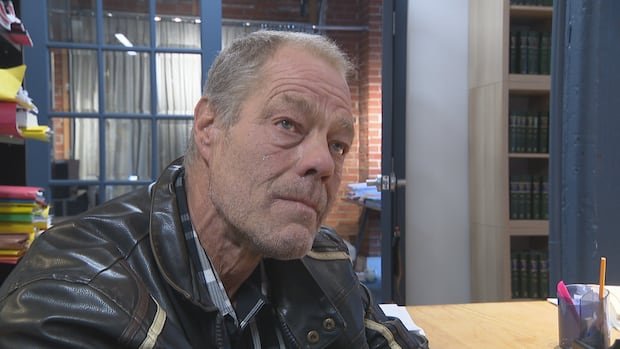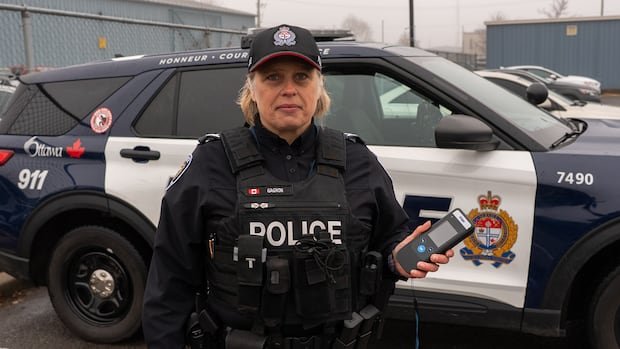Ontario’s appeals court has overturned a conviction and ordered a new trial for a man who spent 23 years in prison for the 1989 murder of a 10-year-old girl, but from all indications, that trial is unlikely to ever happen.
It is a complex case involving retracted confessions as well as allegations of police conspiracy and mishandled evidence that the appeals court re-examined after two former federal justice ministers said a “miscarriage of justice” likely occurred during the original trial of Timothy Rees, 62, more than 30 years ago.
Although the appeals court decision, which was released Thursday, points to several problems with the investigation and subsequent case: It contains no concrete answers about who strangled 10-year-old Darla Thurrott in her Etobicoke bedroom in 1989.
Decades after Thurrott’s death, Rees continues to maintain his innocence.
“I didn’t kill Darla. I’m innocent and it had nothing to do with me,” Rees told reporters in the office of James Lockyer, a lawyer with the non-profit legal organization Innocence Canada, which represented him during the most recent court proceedings.
“Since 1989 I have been labeled a murderer, and I am not,” he said, fighting back tears.
The decision says Thurrott had gone to bed on March 16 of that year and was found dead the next morning, with a post-mortem report revealing she had been strangled.
No intruder broke in the night of the murder
At the time of her murder, Darla had been living in a house with her mother Darlene Thurrott (who was also murdered in 1997), along with her little brother, her mother’s partner Bill Wilson, her mother’s friend Jim Venditti, and owner James Raymer, who, according to court documents, had “physical and intellectual disabilities,” including a limp and poor use of one arm.
Thurrott and Wilson paid minimal rent to live in the house, which was left to Raymer after his mother’s death in 1982, in exchange for helping him with daily tasks such as keeping the place clean and preparing meals.
Rees’ defense team argues that it was Raymer who was responsible for Darla’s death.
Rees was a friend of Thurrott and Wilson and was also staying at the house on the night of the murder. That night, Thurrott, Wilson, Venditti and Rees drank and partied together, with Thurrott and Wilson “repeatedly” snorting lines of cocaine in the second-floor bathroom, according to the decision.
Darla climbed into bed around 9 p.m., while Rees lay down with a pillow and blanket on the floor of the nearby baby’s room around 10:30 p.m., meanwhile, Raymer came home from working a shift at Taco Bell and a subsequent church choir practice around 11 p.m., and then went to bed.
Around 10 a.m. the next day, Thurrott began to worry that her daughter was sleeping too late and that’s when she discovered her lifeless body.
No evidence of an intruder was ever discovered in the home, leaving police with a group of five suspects who slept there that night.
Rees, who was 25 years old at the time, was later charged and convicted of second-degree murder.
Defense Suggests Owner Was Real Killer
Court documents reveal that detectives conducted multiple interviews with Rees before he finally confessed to choking Darla. He later recanted that confession, saying he only made it because he was in a vulnerable state and the officers were harassing him.
Central to Rees’ successful court challenge is the fact that Toronto police had in their possession, but never released, an audio recording of Raymer speaking to an officer immediately after the murder.
In that conversation, Raymer denied killing Darla, but made some statements suggesting prior sexual contact with her. He also suggested that he met her on the night of her death, but later denied it.

Rees’ legal team maintains that that tape, along with other evidence, points to Raymer as the real killer, although the court ruling is less certain.
“The subject of the recording, Mr. Raymer, is a person with intellectual difficulties,” the decision reads. “The recording is filled with inconsistencies about Mr. Raymer’s contact with Darla on the night in question. And much of the focus of the recording is on possible sexual contact in a case in which the murder had no sexual element.”
Still, the court ruled that the recording “should have been released,” also noting that it was improperly made by a marine unit officer who was attached to the Toronto police homicide unit during the winter months. That’s something the decision notes would “defy credibility” for “anyone involved in criminal law for any period of time.”
Raymer, who was a Crown witness at the original trial, died in 1999.
The mother of the crown talks about plans for any new trial
Although Thursday’s decision orders a new trial, it also notes that “the Crown has no intention of putting the case in order.
“To the contrary, it appears that the Crown has no intention of ever proceeding with a new trial,” the ruling reads.
When asked about the Crown’s plans for this case, a spokesperson for the Ministry of the Attorney General said they were “unable to provide further details” as the matter is before the court.
Speaking to reporters, Lockyer said it is “fair to say” that the “chance of the Crown proceeding with a new trial is essentially non-existent.”
He said he anticipates the Crown will likely “resolve the case another way,” probably through a withdrawal.
“I would find it difficult to believe that they would attempt to proceed with a new trial, in light of what is now known,” Lockyer said.









